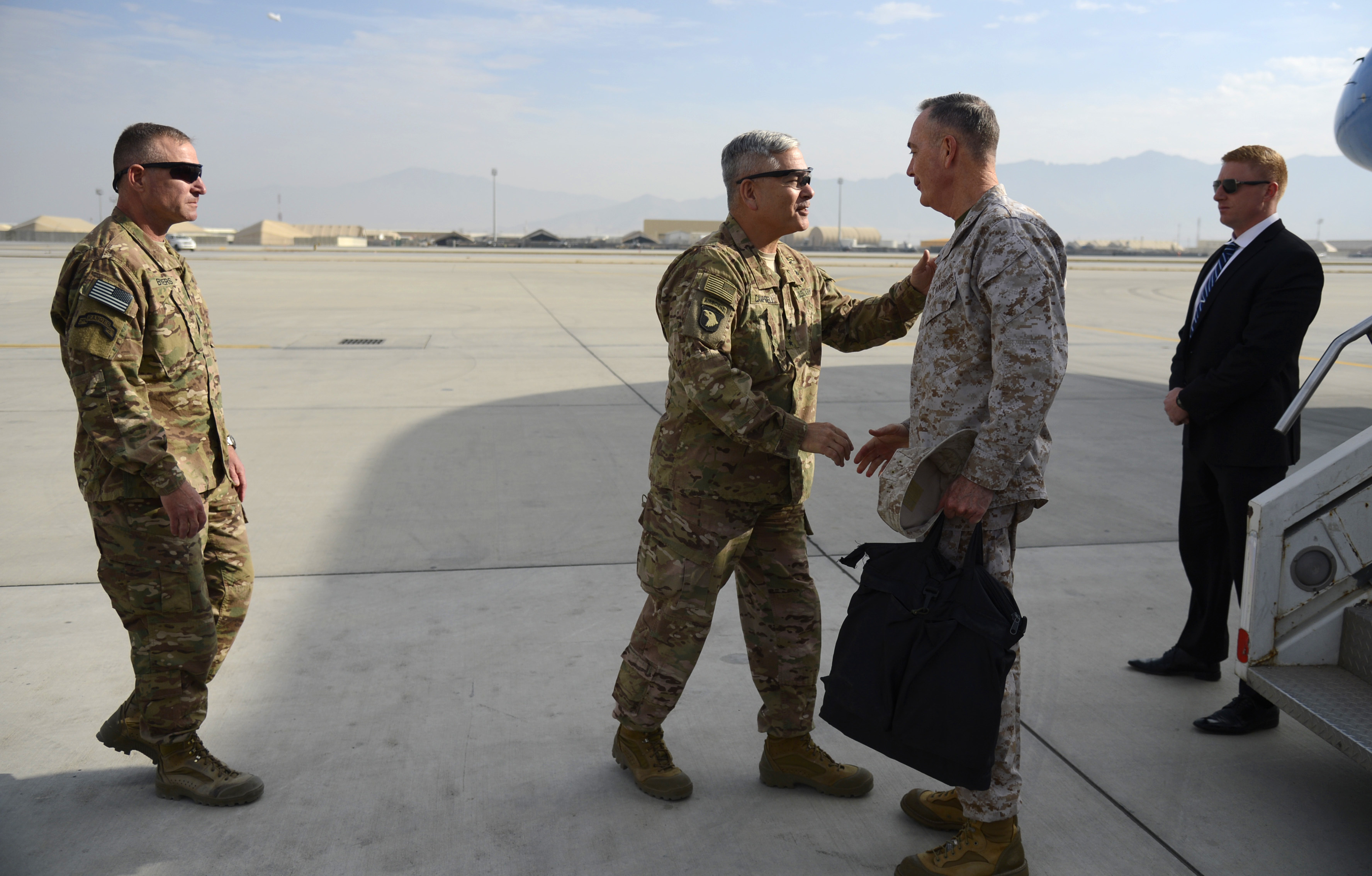By Jim Garamone DoD News, Defense Media Activity
BAGRAM AIRFIELD, December 8, 2015 — President Barack Obama’s
decision to keep 9,800 American forces in Afghanistan into 2016 has resonated
through the region, the commander of NATO’s Resolute Support Mission told
reporters here today.
Army Gen. John F. Campbell said that at this time last year
the United States was headed toward 1,000 service members in Afghanistan by the
end of 2016.
“We were closing all our bases and we were going to be
Kabul-centric,” the general said during an interview.
But in October, President Barack Obama announced that the
U.S. would maintain 9,800 troops in Afghanistan through most of 2016,
ultimately heading toward an end strength of 5,500 by Jan. 1, 2017.
“That’s a huge change from where we were,” Campbell said.
The decision was important for its resonance. Forty
troop-contributing nations signed on last week at the NATO foreign ministerial
meeting to continue contributing forces and money to the Afghan mission.
“We’ll continue to provide the train, advise and assist with
these regional spokes that we’ve had train, advise assist the aviation wing and
Afghan special forces,” Campbell said.
Troop Level Decision Had Wide Audience
That announcement was aimed at six different audiences, the
general said.
It made a huge difference to Afghan President Ashraf Ghani.
Ghani is a willing partner who has spoken of American efforts in his country
and who has told his countrymen of American sacrifices for Afghanistan. The
Afghan leader sees the United States as a “foundational partner,” Campbell
said, and wants to continue to build Afghan capabilities.
The decision gave the Afghan people more confidence,
Campbell said, “that the international community would stay with them. There
was some unpredictability there. If the U.S. stays, everybody stays. If the
U.S. had left, probably everybody would have left.”
Afghan security forces gained the confidence their partners
would remain and help build capabilities.
The decision was a warning to the Taliban that the United States
was committed Afghanistan’s future, and that the group could not simply wait
out the Americans.
For Pakistan, the decision said that the United States and
NATO are in the fight for the long term.
Finally, the decision contained a message for NATO, Campbell
said. “This has been [NATO’s] largest ongoing operation and we have an
opportunity to build upon what we’ve done these last 14 years and come out with
a strategic win here,” he said.
There are still problems, the general said, but the Afghan
government is willing to confront them, learn and move on, the general said. He
cited the Taliban attack on Kunduz as an example. The temporary Taliban
takeover of the provincial capital was an information operation win for the
enemy and a wake-up call for the Afghan government, Campbell said.
Afghan officials understand they have to develop governance
at the lowest levels of the districts to stop similar attacks from occurring,
he added.








No comments:
Post a Comment